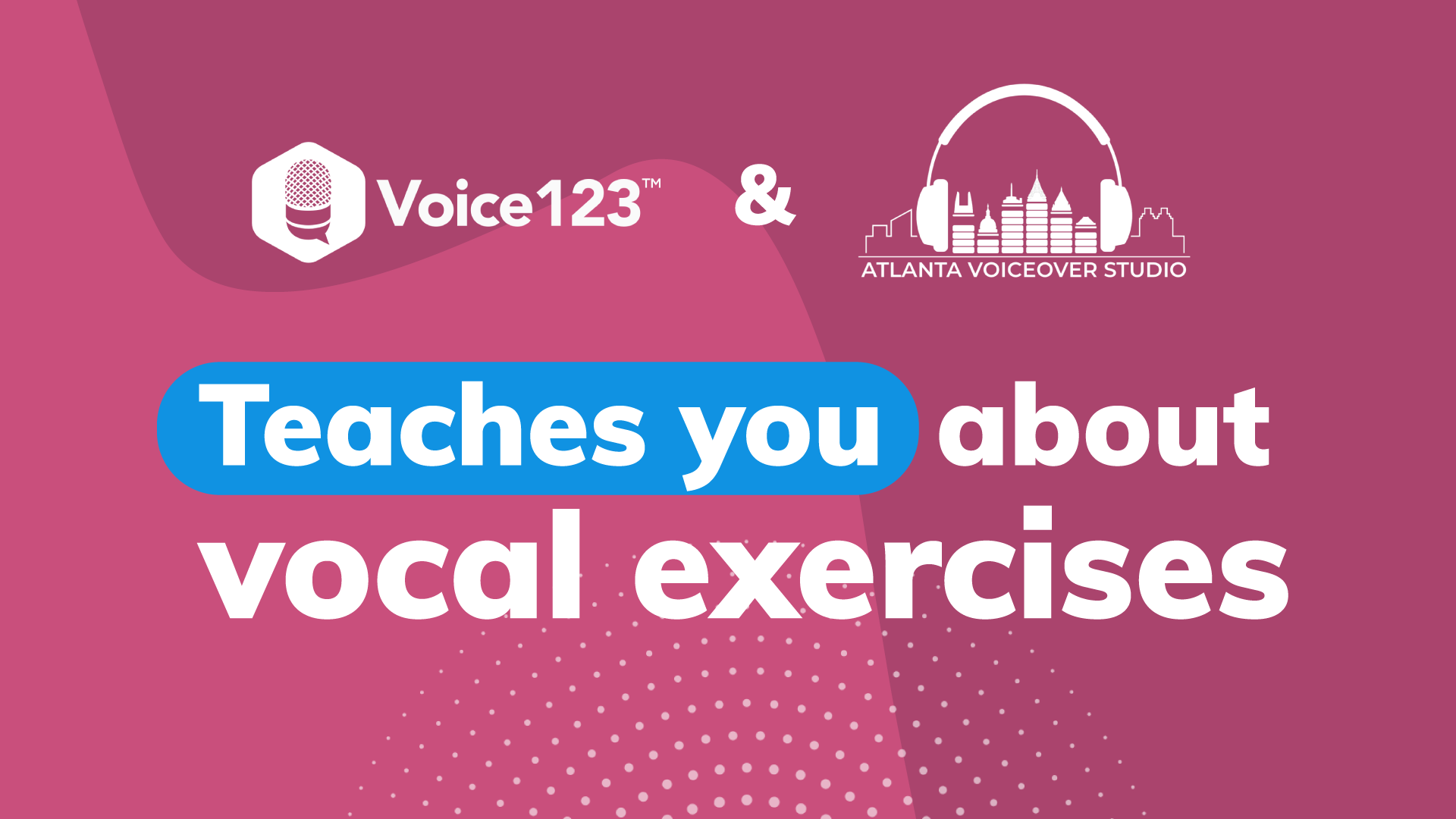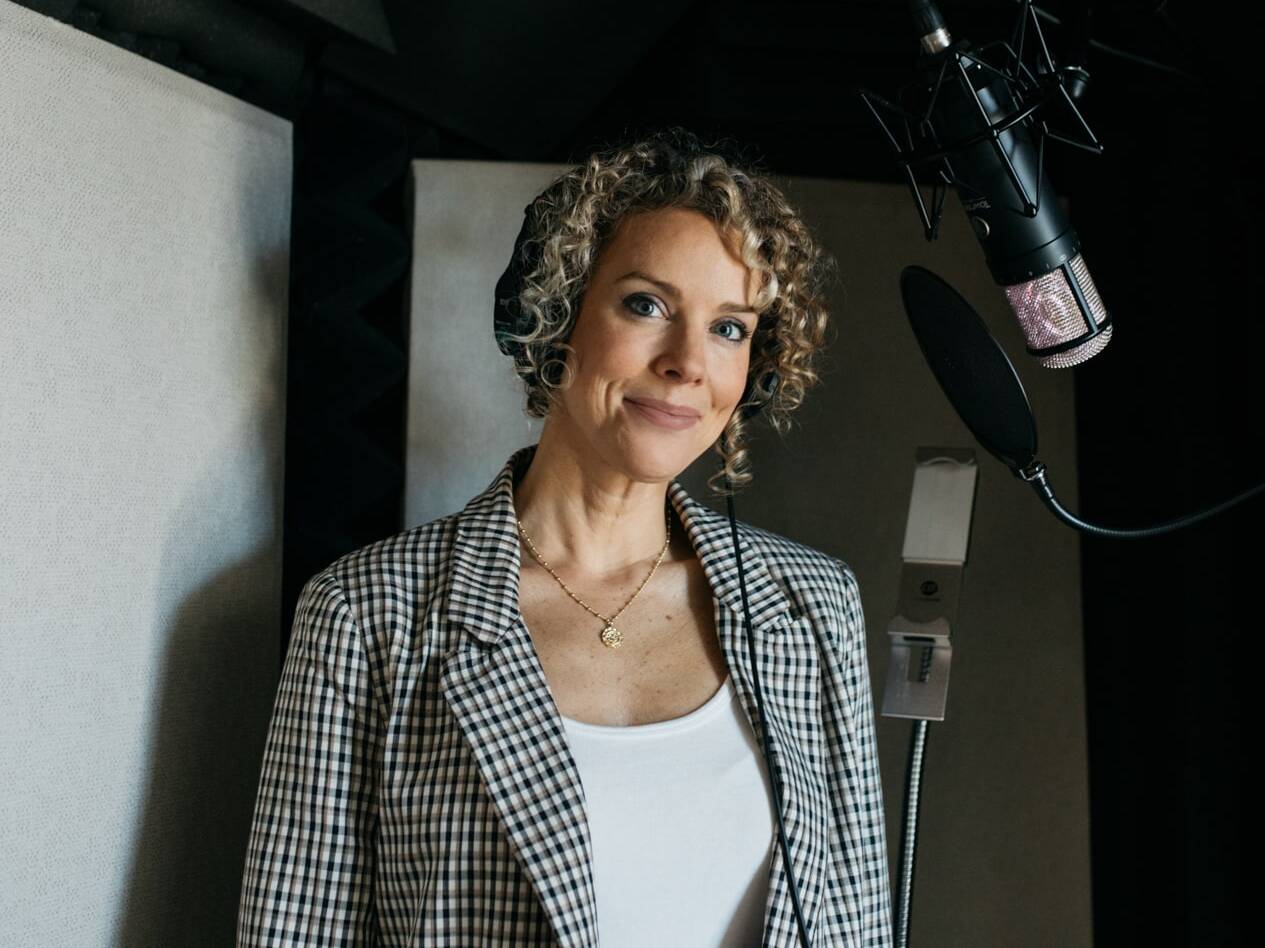
What are the best vocal exercises for voice actors?
Vocal exercises are one of the key ways to take care of your voice. In this section, Voice123 and Heidi Rew from Atlanta voice over studio will break down what are vocal exercises, why you should do vocal exercises, and what are the best vocal exercises for voice actors.
What are vocal exercises?
Think of vocal exercises like baking. You have to do certain things before you get a grand masterpiece of a cake. Such as pre-heating the oven, mixing the ingredients, greasing the cake mould and so on. Vocal exercises are basically the preparation of your voice so that the grand masterpiece of a VO is as pitch-perfect as possible. It also ensures that you don’t overstrain your voice or use your vocal tools without the right vocal warm-ups. And while vocal exercises are vital for pre-recording, it’s also important to do them regularly as a way to keep your voice in good tip-top shape.
Why should you do vocal exercises?
Going back to our illustration of baking, you’d never want to throw your cake in a cold oven! So don’t use ‘cold’ vocal cords. Doing vocal exercises warms up your vocal cords and protects them from damage. Taking care of your voice by doing vocal warm-ups helps to ensure that your voice lasts throughout every job and your entire voice over career.
What are the best vocal exercises for voice actors?
Heidi Rew shares her insights:
To be honest, vocal exercises have always bored me! I feel the same way about warming up and stretching before a run; I just want to get going.
But as you’ve read, it helps enhance our performance and can save us from possible strain. The exercises that I’ve found that work and hit the three areas mentioned above are what I’ve learned from vocal coaches like Mama Jan over the years. I’ve outlined them below and you can check out my video further down.

- RESPIRATORY
I grew up with coaches showing me the book trick to ensure I’m breathing from my diaphragm. My most recent coach taught me a new way that I love even more! This exercise helps you to know if you’re using your diaphragm to support your breathing.
Exercise: Using a plastic baseball bat, sit on the floor near a wall. Place one end of the bat on your stomach, in the area of your diaphragm, and the other end on the wall. Fully engage your diaphragm. Now, do some deep breathing (breath in and hold as long as you can), sing or read a script with long sentences. You should be able to keep the bat steady against the wall.
- PHONATORY
Another fun trick I learned from that same coach was using a Kazoo! These are so much more fun than scales! This exercise not only helps to warm up your vocal cords but also helps with breath control.
Exercise: Using a kazoo (or a straw would also work but a kazoo is so much more fun), hum a song. This helps warm up those vocal cords and requires a consistent stream of breath.
- RESONATORY
I used to be the voice of Belk department stores and we’d have consistent sessions every couple of months (sometimes more). We had a session scheduled the day before Thanksgiving and ended up catching a cold a few days prior and I barely had a voice.
I rested my voice and did all the things I needed to, but the day of the session arrived and it was still not ‘normal.’ So, during the ride to the studio, I did this next exercise. As soon as I got there, I was able to eek out a few takes they were happy with which I really credit to this warm-up.
Exercise: Start as low as you can go then go as high as you can making a siren sound. Think about the sound being in the top of your head and through your nose. It sounds really weird but you should almost feel a clarity in your nasal cavities.
What exercises for voice actors are the most common?
Many voice actors use tongue twisters. For myself, I use a different trick. While tongue twisters are great, this trick you can even do in a session if you get caught on a word. It is super effective in loosening up your whole mouth.
Exercise: Take a pencil and stick the long part in between your top and bottom teeth. Close your lips over it and read through a script with the pencil in your mouth. Your mouth has to work harder to get the words out, so once you take the pencil out, those words should come out like butter.
There have been times I’ve been in a session and I got stuck on something. I ask the client, “May I have one minute to do something?” I put the pencil/pen in my mouth and say the sentence. Once I take it out, the words always flow just fine.
Are there beginner exercises?
The above exercises really do work for beginners or advanced talent. They’re easy to remember and you don’t have to have a singing background to do them.
What are vocal exercises for singers?
There are so many different vocal exercises for singers, but let me share an app that I found that walks you through these. When I’m in my sound booth, I want to make sure I’m on pitch when doing a singing exercise. Unfortunately, I can’t fit a keyboard in the booth. So, I found this app called Swift Scales. It walks you through scale exercises from beginner, intermediate and advanced. It also has quick warm-up scales if you only have a couple of minutes. You can also adjust the notes based on your range. It’s been so helpful for me.
Special thanks to Heidi Rew from Atlanta voice over studio for sharing these insightful tips and vocal exercises!
Be sure to check out the video above for Heidi’s walk-through on performing some of these vocal warm-ups!
Share this post!
A blog owner yourself? Relevant links to quality sites will help your performance on search engines. If your readers will benefit from the services or information on The Booth's Voice over Guide, please consider linking to this post or the guide itself.